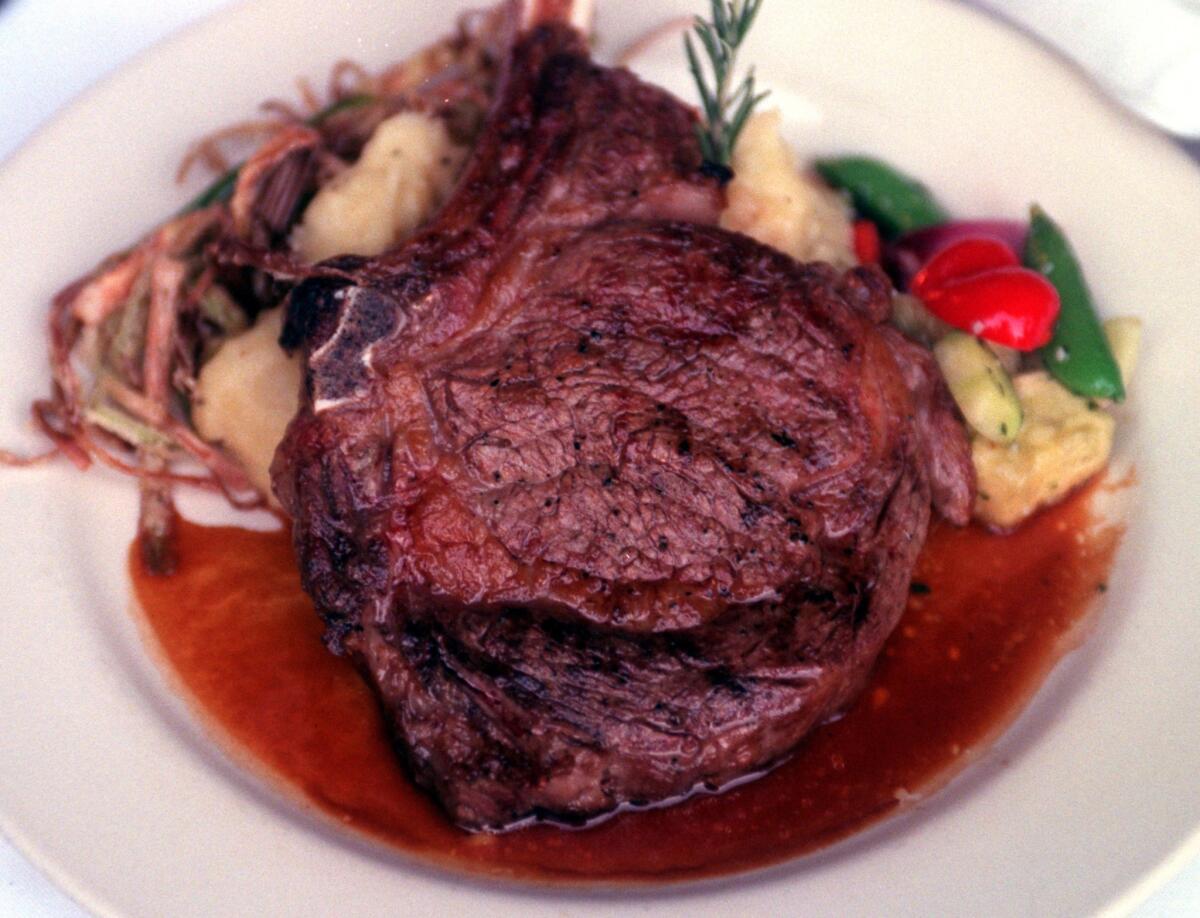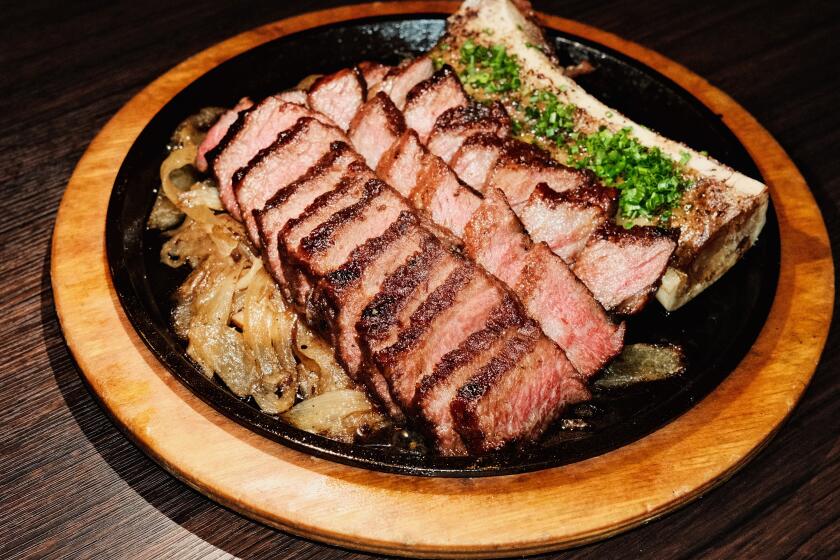4,000 pounds of beef, some at Whole Foods, recalled over fears of mad cow disease

More than 4,000 pounds of beef, some of which made its way to Whole Foods stores, were recalled Wednesday over fears of possible contamination with substances that could lead to bovine spongiform encephalopathy, otherwise known as mad cow disease, according to the U.S. Department of Agriculture.
The affected meat, some sold in the form of bone-in rib-eye roasts, was processed at Fruitland American Meat in Jackson, Mo. It was shipped to the Whole Foods distribution center in Connecticut and ended up at 34 Whole Foods stores in the Northeastern area of the country. The meat was also distributed to a restaurant in New York City and a restaurant in Kansas City, Mo.
The USDA labeled the situation a low-risk, class two recall. No illnesses have been reported.
The recalled beef was packaged between September 2013 and April 2014, according to a statement from the USDA. The affected products include 40-pound cases of cryovac packages of bone-in Rain Crow Ranch Ribeye with the establishment number 2316 and quartered beef carcasses with the same establishment number.
The meat was recalled after a USDA Food Safety and Inspection Service of the company slaughter logs revealed some of the cattle may not be in compliance with USDA regulations that require the full removal of the dorsal root ganglia in cattle aged 30 months and older. The problem could have been caused by the way some company employees were recording the age of the cattle.
The dorsal root ganglia is labeled by the service as specific risk material (SRM).
“SRMs are tissues that may contain the infective agent in cattle infected with Bovine Spongiform Encephalopathy (BSE), as well as materials that are closely associated with these potentially infective tissues,” said the USDA in a statement.
The FSIS public health veterinarian inspected all the cattle in question and found no signs of mad cow disease.
According to the Centers for Disease Control and Prevention, human consumption of meat contaminated with mad cow disease can result in Creutzfeldt-Jakob, a fatal, rapidly progressive neurodegenerative disorder.
The USDA is asking anyone with questions to call the Fruitland American Meat company sales manager at (573) 243-3107. Anyone concerned about a reaction to contaminated meat should contact a healthcare provider.
More to Read
Eat your way across L.A.
Get our weekly Tasting Notes newsletter for reviews, news and more.
You may occasionally receive promotional content from the Los Angeles Times.







